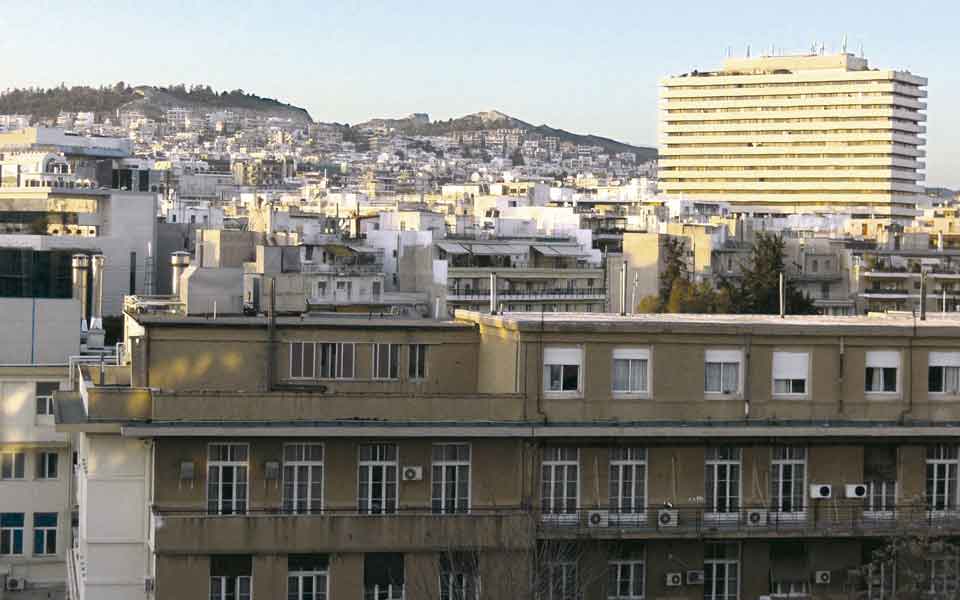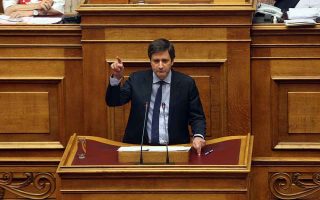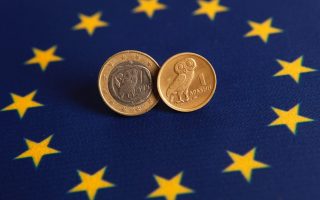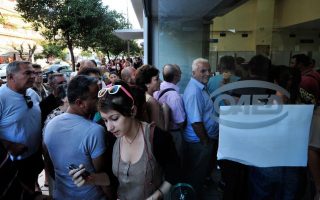Why ENFIA is at the center of debate

Speaking at the Thessaloniki International Fair (TIF) on Saturday, New Democracy leader Kyriakos Mitsotakis confirmed his plans, as revealed to Skai TV earlier this month, to reduce the ENFIA property tax by 30 percent in his first two years of power.
It is no surprise Mitsotakis chose this out of so many taxes to demonstrate his intention to scale back the magnitude of levies taxpayers must pay. ENFIA has become synonymous with the extra tax burden Greeks have to bear on their journey out of the country’s long economic crisis.
In its original form, ENFIA was an emergency tax that was levied through electricity bills. It was introduced in September 2011 by then finance minister Evangelos Venizelos and approved by just 154 MPs. Venizelos turned to the levy at the last minute in order to plug a hole in the budget. The tax was originally slated to bring in around 2 billion euros per year and was the first regular property levy of its kind.
The fact that homeowners had to pay an extra few hundred euros (in most cases) each year enraged many of them. Perhaps in previous years they had got off lightly, but well into the country’s recession, with jobs disappearing and wages being slashed, another addition to the tax bill was fundamental in snapping the middle class’s patience.
It was no coincidence George Papandreou stepped down as prime minister less than two months after the property tax was introduced. The section of the middle class willing to endure the pain of the fiscal adjustment which began in 2010 lost faith in the government’s ability to see the process through without repeatedly heaping new loads on them.
Also, the decision to impose the levy via household electricity bills was seen as socially unjust and led to cases of poor families having their power cut off because they could not afford to pay. “I am acutely aware of the hardship and the anguish such sacrifices have caused for Greeks," said Venizelos at the time. The electorate, though, was not convinced, and, apart from Papandreou’s hasty departure, PASOK’s fate was also sealed. The once-mighty Socialists saw their support nosedive from almost 44 percent in the 2009 elections to just over 12 percent in June 2012.
In the meantime, the so-called emergency tax has become a permanent fixture in the Greek fiscal calendar. Antonis Samaras had hoped to lighten the load when he came to power in 2012 and was unable to. Prime Minister Alexis Tsipras succeeded him in 2015 on the back of promises to scrap ENFIA altogether. “You cannot correct ENFIA, you have to abolish it,” he had said, taunting Samaras over his efforts to reduce the amount at least some homeowners had to pay.
Mitsotakis claims that because he experienced this process he has tempered his goal of paring back the property tax and proposed a staggered reduction that he believes is realistic. The New Democracy leader says that any loss of revenue can be made up through cuts in public expenditure. The former administrative reform minister argues that there are many areas of government spending that could be trimmed to make the ENFIA decrease fiscally neutral.
Apart from not wanting to fall into the same trap as his predecessors, there is another good reason for Mitsotakis being cautious in any attempt to tamper with ENFIA: It is an incredibly effective tax. ENFIA’s dirty secret is that despite the outrage, the sense of unfairness, the grumbling and the political tremors it has unleashed, Greek homeowners pay it in surprisingly high and consistent amounts.
The General Secretariat for Public Revenue last week published the final numbers for this year’s property tax, which is in the process of being paid, as well as the data relating to the payment of the 2015 edition of the levy. The Finance Ministry is aiming to collect exactly the same amount this year as last: 2.65 billion euros. This is lower than the total amount charged but still represents a collectability rate of 83 percent against the total, which is extremely high compared to other Greek taxes and when one takes into account the country’s wider economic circumstances. In comparison, the collectability rate for personal income tax last year was 63.8 percent and just over 81 percent for corporate tax and value-added tax.
This year 7.37 million individuals are due to pay the tax, facing an average bill of just under 370 euros. In addition, some 55,000 companies have to pay an average of 8,450 euros each. The way the tax works this year is that the basic rate is applied to properties with a so-called objective value of up to 200,000 euros, while a supplementary charge is added to more expensive properties. Previously, the dividing line was set at a taxable value of 300,000 euros.
Compared to 2015, nine in 10 taxpayers will pay less, the same, or up to 10 euros more in ENFIA this year. Six percent are due to pay an amount that is 10 to 50 euros higher, 2.1 percent will be charged 50 to 1,000 euros more and 3,430 people (0.07 percent of the total) have seen their bill rise by more than 1,000 euros.
The government argues that due to its tweaking of the tax this year, the burden has been shifted more onto the owners of large properties and away from taxpayers who have smaller homes. When Tsipras appeared at TIF on September 10 to set out his economic policy proposals, he made no suggestion that he entertains thoughts of ditching ENFIA any longer. All that he pledged was to shift the burden further toward large property owners.
Like Mitsotakis, he has also realized the importance of maintaining a tax that brings in significant revenues and which the vast majority pay, even if they do so through gritted teeth.





